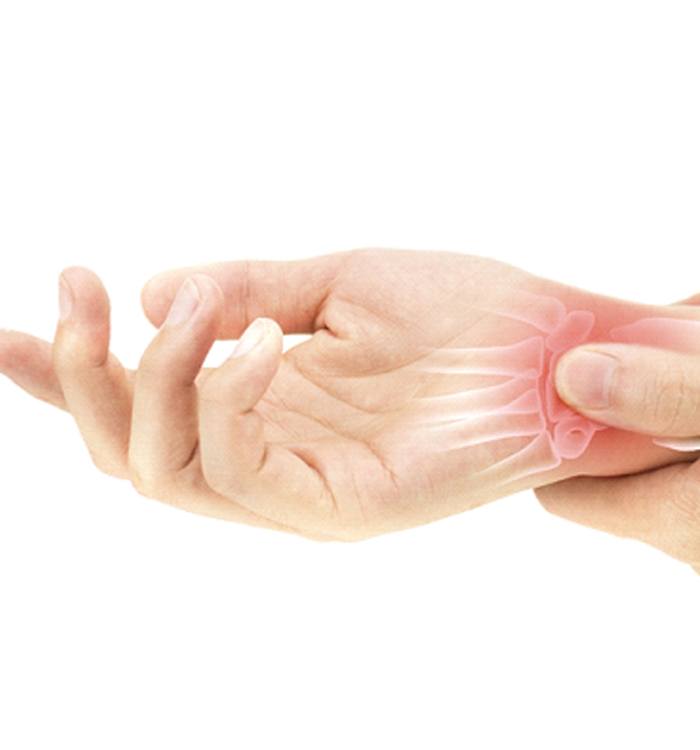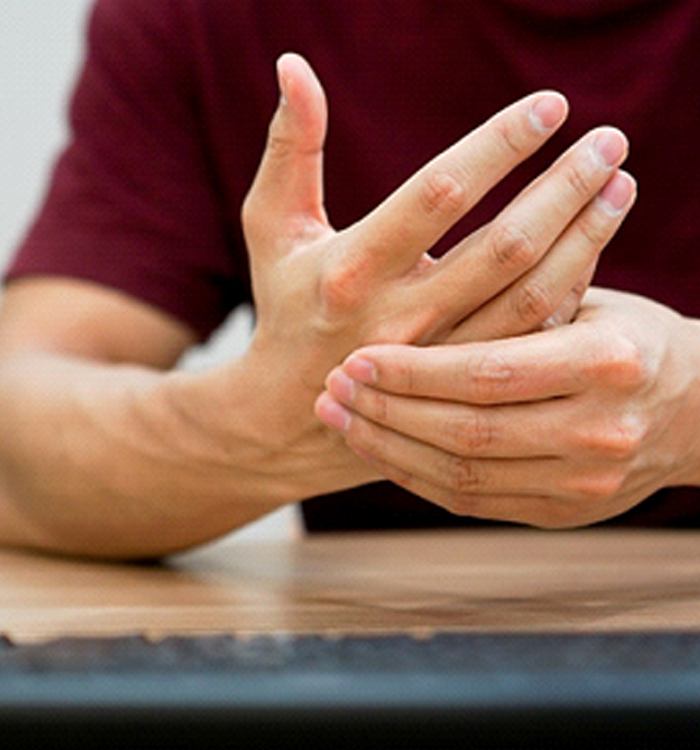
Carpal Tunnel Syndrome—Asheville, NC
Get Rid of Your Wrist & Hand Pain
In most people’s minds, carpal tunnel syndrome is associated with office workers developing wrist and hand pain due to typing all day, but this doesn’t quite match up with reality. In fact, most of the people who suffer from this condition are either athletes or part of the manufacturing, construction, or warehousing industries. Basically, any task that requires someone to make the same hand and wrist movements over and over is at risk.
While CTS is only annoying at first, without treatment, it can severely hamper someone’s ability to accomplish even the simplest tasks, let alone work. Dr. James Pinkston can help those who believe they have CTS or have already been diagnosed with it using proven, non-invasive solutions that can stop pain, improve mobility, and help patients avoid unnecessary surgery.
The Basics of Carpal Tunnel Syndrome

There are three main nerves that run down the entire length of the arm, and CTS occurs when the median nerve becomes pinched due to pressure being applied to it by the surrounding muscles and tendons. The actual carpal tunnel is a small space in the wrist that the median nerve uses to reach the fingers. When the soft tissues that make up the tunnel become inflamed or swollen, they press on the nerve, causing CTS symptoms.
The Causes of Carpal Tunnel Syndrome

The most common causes of carpal tunnel syndrome include:
- Repetitive hand and wrist movements for a long period of time
- Frequent bending of the wrist
- An injury to the wrist
- Pregnancy
People with arthritis, diabetes, or a thyroid disorder have an elevated risk of developing CTS compared to the average population.
The Symptoms of Carpal Tunnel Syndrome

Many people tend to not notice the first sign of carpal tunnel syndrome, which is numbness and tingling in the palm next to the thumb, index, and middle fingers. This can sometimes start in the wrist and radiate into the fingers. Over time, a person will develop pain in their wrist and have difficulty moving it comfortably, and they may also notice weakness and drop things more often. Some patients describe feeling like their fingers are swollen even though they are not.
Treatment Options for Carpal Tunnel Syndrome

Fortunately, carpal tunnel syndrome, when found relatively early, responds very well to conservative measures, including bracing, anti-inflammatory medication, and corticosteroid injections.
When these treatments aren’t able to fully address a patient’s problem, the next step is usually surgery. Thankfully, Dr. Pinkston can use something called nerve hydrodissection to help his patients avoid going under the knife. It involves injecting a fluid solution into the wrist, which provides a layer of cushion between the median nerve and tissues of the carpal tunnel. This relieves the pressure that is causing the pain and numbness, allowing someone to carry on with their normal life without hindrance or interruption. The solution also contains a small amount of sugar, which triggers and focuses the body’s healing response on the swollen tissues that are the root cause of the problem.
Carpal Tunnel Syndrome FAQs

Even though this page has a lot of helpful information, it’s no surprise if you have more questions about carpal tunnel syndrome. You’ll find our answers to some frequently asked questions below, and if there is anything else you would like to know about that we haven’t covered here, be sure to give our team a call.
How is carpal tunnel syndrome diagnosed?
Not all hand and wrist pain is due to carpal tunnel syndrome, so a complete examination is necessary before Dr. Pinkston can make a diagnosis. This will involve asking the patient about their symptoms, doing a physical exam, and taking X-rays/using diagnostic ultrasound. Based on what he observes using these various approaches, Dr. Pinkston can accurately determine whether or not carpal tunnel syndrome is what’s causing a patient’s issues.
Can carpal tunnel syndrome go away on its own?
Theoretically, yes, but in most cases, no. Often, the repetitive hand and wrist movements that lead to CTS are connected to someone’s job, so taking days, weeks, or months off to heal just isn’t plausible. Over time, the opposite tends to happen, in that symptoms and pain become worse because the muscles continue to press on the nerve. Once someone has CTS, simple daily activities not associated with work or sport can exacerbate the condition as well, which is why professional treatment is essential to fully recover.
Should I get surgery to fix carpal tunnel syndrome?
Surgical correction is available for carpal tunnel syndrome, but it is only recommended in the most advanced cases or if a patient isn’t responding to any other treatment. While the procedure itself is effective, it is still surgery, meaning it can lead to complications, and it requires quite a bit of recovery time afterward…time that many patients simply don’t have. Plus, surgery is much more expensive compared to the conservative options we offer at Asheville Non-Surgical Orthopedics. One of the big advantages of how we provide care is that it allows a patient to maintain their normal routine while getting the treatment they need.
How long does carpal tunnel syndrome treatment take?
The answer to this question largely depends on how severe a patient’s condition is and how long they have been experiencing symptoms. Minor cases can often be resolved in a matter of weeks with a small number of appointments, but for more severe ones, the treatment process may require several appointments over the course of a few months. Everyone’s situation is different and requires a personalized approach. When you come to see Dr. Pinkston, he’ll go over your estimated timeline of recovery so you have a better idea of what to expect.